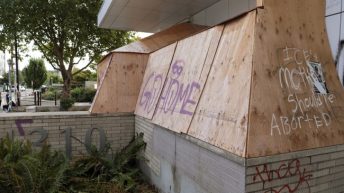The arrival of federal Border Patrol and ICE personnel in Charlotte has sparked a predictable clash between local Democrats and federal agents, with elected officials warning about community fear while a DHS commander and law enforcement leaders push back on misinformation and operational secrecy. This piece lays out the key statements, the political theater around coordination, and the tensions between protecting communities and enforcing immigration law.
The killing of Iryna Zarutska remains a grim backdrop to the debate, and it is still shaping how officials and citizens view federal immigration enforcement on American streets. Memories of that violence feed into the political arguments going on now, and they factor into why federal agencies are choosing to move resources where they think threats exist. The conversation is heated because safety and immigration enforcement collide in visible ways.
The Trump 47 administration moved to deploy CBP and ICE resources across multiple cities, including Los Angeles, Memphis, Chicago and now Charlotte, North Carolina. Local leaders in Charlotte publicly objected, asserting that municipal police do not enforce federal immigration laws and warning of a chilling effect on immigrant communities. Those objections came in a signed letter from several city and county officials, which framed their stance around belonging, due process and public trust.
Charlotte City Council member-elect JD Mazuera Arias wrote, “Our message is simple: Mecklenburg County and Charlotte are communities of belonging. We will stand together, look out for one another, and ensure that fear never divides the city we all home.” The letter also noted that local law enforcement “doesn’t have the authority to enforce immigration laws and doesn’t participate in federal immigration operations.” That legal distinction is true, but it does not remove federal responsibility to act where it deems necessary to protect the public.
Representative Alma S. Adams, Ph.D. issued a strong statement saying she was “extremely concerned about the deployment of U.S. Border Patrol and ICE agents to Charlotte.” She added, “Charlotte’s immigrant community is a proud part of the Queen City, and I will not stand by and watch my constituents be intimidated or harassed.” Those words capture the political focus on civil liberties and community relations that Democrats have leaned into.
“Everyone deserves to be treated with dignity,” she continued, “and what we have seen border patrol and ICE agents do in places like Chicago and Los Angeles—using excessive force in their operations and tear gassing peaceful protestors—threatens the wellbeing of the communities they enter.” Her point reflects concerns about tactics and optics, even as federal officials insist their work targets criminal activity, not broad-based harassment of immigrants.
Sheriff Gary McFadden of Mecklenburg County pushed for better communication, saying federal officials had not informed him or local police about any planned operation. He requested that DHS notify local agencies in advance to help ensure safety and avoid misunderstandings. That request for coordination is sensible, but it runs into the operational reality that agencies like CBP and ICE often keep details confidential to preserve officer safety and mission effectiveness.
“Given the current climate surrounding immigration and the potential for violence associated with law enforcement operations at any level, Sheriff McFadden respectfully requests that any CBP activities taking place within Mecklenburg County be communicated to MCSO and local law enforcement in advance along with any relevant updates or points of contacts. This will help ensure the safety of all parties involved.”
There is a pattern here: blue-city politicians demand warning and coordination, then criticize federal actions when they occur. The sheriff’s earlier comments about an incident where ICE agents wore masks and an arrest ended up in a pond underline local friction and distrust. The sheriff said, “The duck pond incident really bothered me,” and asked why agents would “sneak around” with masks on, which highlights the communication gap between local officials and federal operators.
Gregory K. Bovino, a commander who works with DHS in Los Angeles, stepped into the debate on X to make a sharp distinction between lawful immigrants and people who have entered or remained in the country illegally. He wrote, “Immigrants rest assured, we have your back like we did in Chicago and Los Angeles,” and added, “Rep. Adams, perhaps you & Gov. STEIN should learn the difference between an illegal alien & an immigrant. Illegal aliens have NO PLACE in our communities and should self deport via CBP Home.” That blunt language reflects a law-and-order Republican perspective focused on public safety first.
Federal officials emphasize that they do not publicly preview operations. Tricia McLaughlin, assistant secretary of homeland security, stated in a release that DHS enforces national law across the country every day and will not discuss future or potential operations. That posture is rooted in protecting enforcement activity and personnel, but it fuels local accusations that agencies operate without accountability.
Border Patrol officials told McClatchy Tuesday the agency does not “discuss future or potential operations.” “Every day, DHS enforces the laws of the nation across the country,” Tricia McLaughlin, assistant secretary of homeland security, said in a statement.
Democratic officials like Rep. Adams and Governor Josh Stein have publicly opposed the deployments and focused on protecting immigrant communities from intimidation, while federal agents and some local law enforcement leaders argue that operations target criminal illegal aliens and are necessary for public safety. Those are two sides of the same political debate: one prioritizes civil liberties and community trust, the other prioritizes law enforcement and deterrence.
What plays out in Charlotte mirrors what happened in Chicago, where officials complained about a lack of notice and criticized federal tactics. The tension between keeping communities safe and maintaining public trust is unlikely to vanish, and both sides are using this moment to advance their broader policy arguments. For now, the deployment goes forward amid political pushback and heated public statements from elected officials and federal commanders alike.





Add comment